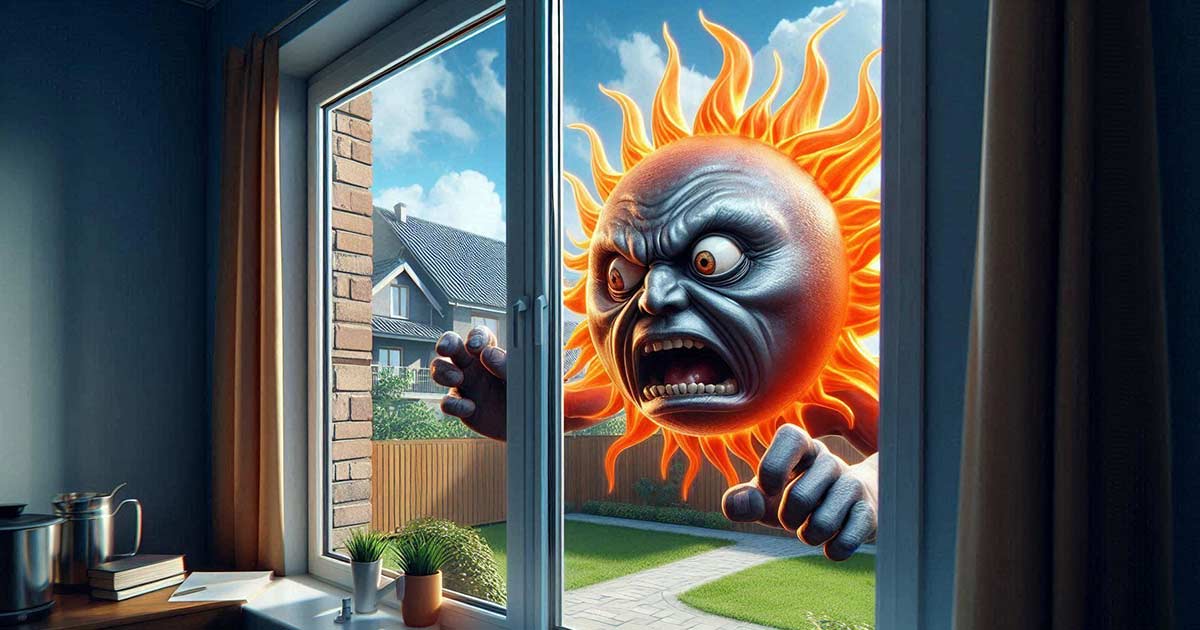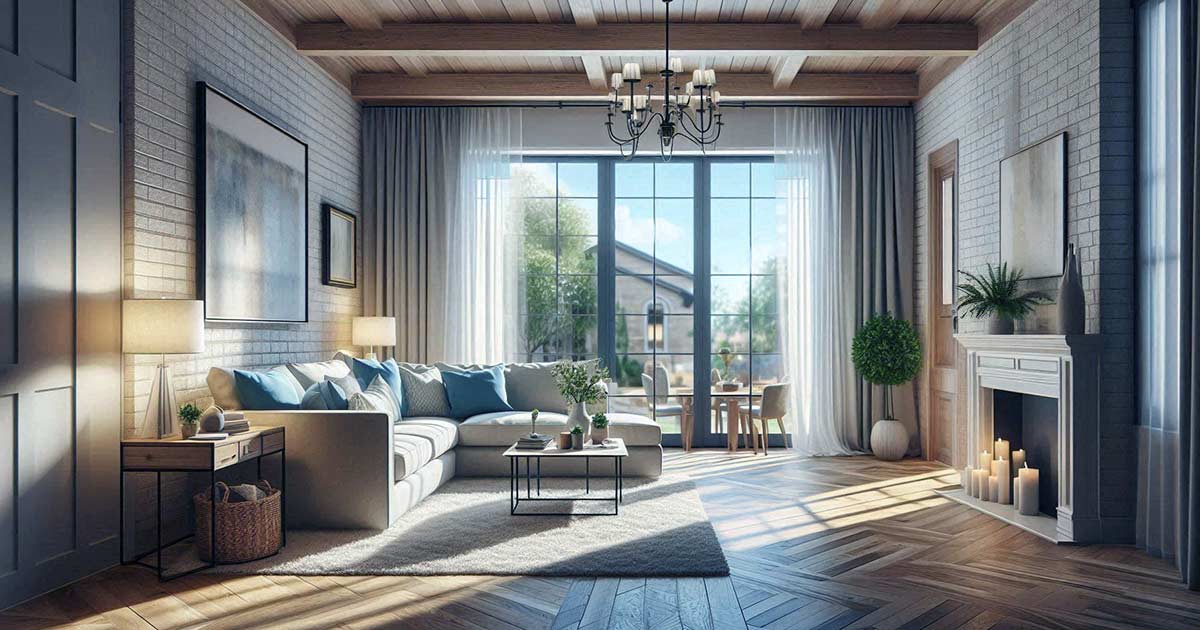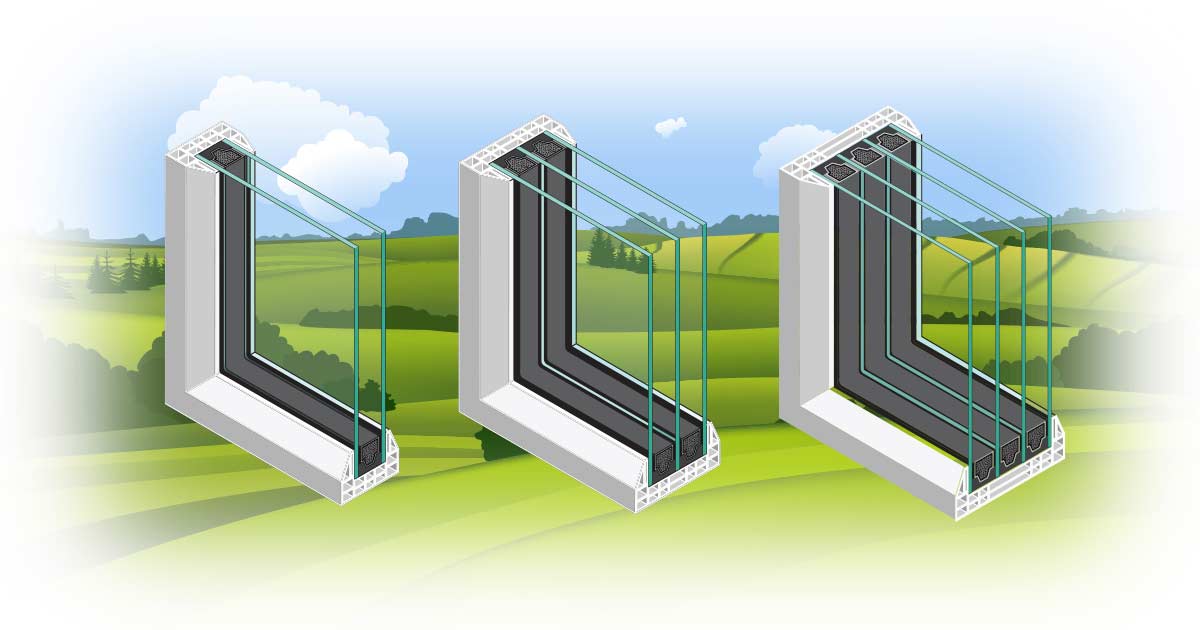Insights > Article > Posted: 2025-Mar-20, Updated: 2025-Mar-31
Window Technology
Battling the Sun

Overheating, fading furniture, and increased energy bills are common problems homeowners face due to the sun’s impact on windows. Thankfully, modern technology is revolutionizing how we manage these effects, offering innovative solutions to keep our homes comfortable and protected.
The Impact of Sun and Heat Coming Through a Window
- Increased Indoor Temperature: During summer, the sun's rays can cause indoor temperatures to rise significantly, making living spaces uncomfortable. This increases the reliance on air conditioning, leading to higher energy consumption and costs.
- UV Damage: Ultraviolet (UV) rays from the sun that penetrate windows cause damage to interior elements such as sofas, carpets, flooring, paintings, and photographs. Prolonged UV exposure can also weaken fabrics, warp wood, and diminish the vibrancy of decorative items, reducing the lifespan of your home's furnishings.
- Excessive sunlight can cause intense glare on screens and reflective surfaces, making it hard to work, watch TV, or use devices comfortably. This glare not only strains the eyes but also disrupts visibility and reduces enjoyment. To mitigate these issues, window blinds, shades, or anti-glare screen filters can be used to improve visual comfort.
Conventional Solutions
Curtains and Blinds
Curtains and blinds are traditional window treatments used to block out sunlight. They help reduce heat and glare by covering the windows and can provide some degree of UV protection depending on the material. While they effectively manage light and privacy, they can also make rooms darker and may not significantly reduce heat compared to other solutions.
Window Tint Films
Window tint films are adhesive layers applied directly to glass surfaces to manage sunlight. They are designed to reduce heat, glare, and UV radiation by absorbing or reflecting solar energy. Available in various types, including dyed, metalized, and ceramic films, they provide an affordable and customizable option for enhancing window performance. However, their effectiveness can diminish over time, and applications might void existing window warranties.
Leading brands offer a variety of window tint films to enhance window performance. 3M provides options such as the Color Stable and Crystalline Series, which offer excellent heat reduction and UV protection. Llumar features the FormulaOne Performance Films, known for their durability and effective glare reduction. Huper Optik offers high-performance ceramic films like the Ceramic Series, which combine superior heat control with clear visibility.
Solar Control Films
Solar control films are specialized window films designed to manage solar heat gain and glare. By reflecting a significant portion of the sun’s energy, they help keep indoor spaces cooler and more comfortable while reducing glare and UV exposure. Ideal for retrofitting existing windows, these films are cost-effective but may need replacement over time and can alter the appearance of the glass.
Several top brands offer effective solar control films. 3M provides films like the Prestige Series, which reduces heat and UV while allowing plenty of light. Llumar offers the ATR Series, known for balancing performance and cost. Solar Gard features the Panorama Series, which excels in heat rejection and glare reduction.
External Shading Structures and Devices
External shading devices, such as awnings or pergolas, are installed outside windows to block direct sunlight from entering a home. They provide a physical barrier that reduces heat gain and glare by preventing sunlight from hitting the glass. While they offer effective sun control and can be customized to fit specific needs, they require additional space for installation and may need regular maintenance to ensure their continued effectiveness.
Today's Technology Solutions
Low-emissivity (Low-E) Glass
Low-E glass is a popular option for reducing the effects of sunlight. This type of glass features a thin metallic coating that reflects heat back outside while allowing visible light to enter. The Low-E coating helps to block UV rays, which protects interior furnishings from fading and reduces the amount of heat transferred into the home, improving energy efficiency. While Low-E glass can be a costlier investment compared to standard glass, it offers significant long-term benefits in energy savings and interior preservation.
Tinted Glass
Tinted glass is designed to absorb and reflect sunlight, helping to cut down on heat and glare. By incorporating various tints, this glass can also enhance privacy by obscuring the view from outside. However, while tinted glass can effectively manage sunlight and reduce glare, it may darken the interior of the home, potentially limiting natural light. Additionally, over time, the tint can fade, which may diminish its effectiveness and require replacement.
Heat-absorbing Glass
Heat-absorbing glass is designed to absorb and retain heat from sunlight, which helps to prevent excessive solar heat gain inside the home. This type of glass helps maintain a stable indoor temperature by absorbing sunlight and keeping it from increasing the temperature inside. While effective, heat-absorbing glass can lead to higher internal temperatures if not used in conjunction with other cooling methods. It may also not be the best option for all climates, particularly in cooler regions.
Spectrally Selective Coatings
Spectrally selective coatings are advanced coatings applied to glass that filter specific wavelengths of light. These coatings reduce heat and UV rays while allowing visible light to pass through. They are designed to minimize solar heat gain and protect interior furnishings from UV damage without significantly reducing natural light. Although effective, these coatings can be expensive, and their performance can vary depending on the quality of the coating.
Insulated Window Units
Insulated window units feature double or triple panes of glass with insulating gas fills between them, which significantly improves thermal performance. These units help to reduce heat transfer and increase energy efficiency by creating a barrier against outdoor temperatures. While they offer substantial benefits in energy savings, insulated window units come with a higher initial cost and may develop issues such as gas leaks over time.
Smart Glass
Smart Glass represents the cutting edge of window technology, featuring glass that can adjust its tint or transparency in response to sunlight. This dynamic control allows homeowners to modulate light and heat levels based on their preferences and changing sunlight conditions. Although smart glass offers significant flexibility and energy efficiency benefits, it is often expensive and requires specialized installation and maintenance.
Gas in Insulated Glazing Units
Gas-filled insulated glazing units, using argon or krypton, improve thermal insulation by reducing heat transfer. While this gas does not filter UV rays, it helps maintain a stable indoor temperature and enhances energy efficiency by minimizing heat gain and loss through the window.
Practical Tips for Homeowners
1. Regular Maintenance:
Ensure that your windows are well-maintained to keep them performing optimally. Clean the glass surfaces and check for any damage to seals or frames that could compromise insulation.
2. Professional Assessment:
If your windows are older than 20 years old, consider having a professional assess your home’s windows to recommend the best combination of technologies for your specific needs. This can help in making informed decisions and investing in the most effective solutions.
3. DIY Solutions:
If replacing windows isn’t immediately feasible, consider temporary solutions like reflective films or shades that can provide some relief from heat and UV rays until a more permanent solution is implemented.
Conclusion
The sun and heat can have a significant impact on the comfort and longevity of your home’s interior. However, with the advancements in window technology, homeowners now have a variety of solutions to mitigate these effects. From Low-E and smart glass to solar control and triple glazing, modern windows are designed to provide comfort, energy efficiency, and protection from UV damage. By combining these technologies and implementing practical tips, you can enjoy the benefits of natural light without the downsides, creating a more comfortable and sustainable living environment.
Related articles
Have Questions or Need Assistance?
If you're interested in learning more about how our advanced window technologies can help you manage sun exposure, heat, and UV damage in your home, don't hesitate to reach out. Whether you need more information or wish to discuss specific solutions for your needs, we're here to assist you.
Request information | 613-838-2211 | Request a quote
We look forward to helping you create a more comfortable and energy-efficient living environment!
Fighting the Climate
Battling the Sun
INFOGRAPHIC
Understanding Causes
Why Take it Seriously?
How to Prevent
Year-round Semblance
New Window Fix?
Try Our Dewpoint Calculator
Humidity/Temp. Guidelines


